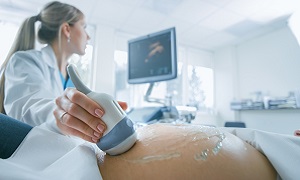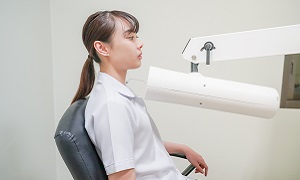Best Doctors in India for Grave's Disease treatment
Best Hospitals in India for Grave's Disease treatment
Hospital Highlights:
- Apollo Hospitals is a private healthcare group in India, with its headquarters based in Chennai. Established in 1983 by Dr. Prathap C. Reddy, the group offers a wide range of medical treatments and services across various specialties.
- It is renowned for emphasizing innovation and utilizing cutting-edge medical technologies into patient treatment.
- Known as India’s first corporate hospital, Apollo Hospitals is often credited for pioneering the private healthcare revolution in the country.
- With clinics and hospitals located all throughout India, Apollo Hospitals is a nationwide healthcare organization. Its presence can also be found in foreign countries.
- Preventive health examinations, medical and surgical treatment, and diagnostic centres are just a few of the services that the Apollo group provides.
- The group has several centres of expertise, including Cardiac Sciences, Neurosciences, Orthopedics, Emergency Care, Cancer Care, and Organ Transplantation.
- City: Chennai, India
Hospital Highlights:
- RIMC is a multi-specialty hospital in a sprawling area of 36 acres located in Chromepet, Chennai, Tamil Nadu, India.
- The facility has 450 beds including 130 critical care beds, 9 operating rooms, modern reference laboratories and radiology services, and is conveniently located near road, rail and air transportation.
- RIMC is led and managed by world-renowned physicians committed to healthcare.
- RIMC offers the broadest range of clinical care, education, and research. The hospital offers state-of-the-art technology and modern treatment facilities designed to provide health care at an affordable cost.
- Rela Institute is driven by patient needs, comfort and confidence.
- City: New Delhi, India
Hospital Highlights:
- Fortis Hospital in Shalimar Bagh is a multi-super specialty hospital that strives to provide world-class patient care by leaving no stone unturned.
- Fortis, Shalimar Bagh, with 262 beds and a 7.34-acre footprint, provides the best level of medical care through its team of doctors, nurses, technicians, and management professionals.
- City: Bengaluru, India
Hospital Highlights:
- Established in 2007, the Apollo Hospitals Bangalore is a 300-bed multispecialty hospital situated in Bannerghatta Road, Bangalore.
- Equipped with the state-of-the-art technology, it is a leading hospital dedicated to providing healthcare needs to patients with compassion and expertise.
- It is the first hospital to have completed the highest number of Robot Assisted Heart Surgeries in India.
- Over the years, it has successfully conducted some of the rarest medical procedures such as spinal angiolipoma excision, autologous chondrocyte implantations, and tibial tuberosity shift with MPSL reconstruction.
- The Apollo Hospitals Bangalore has the reputation of performing the greatest series of airway stents in the country.
- Additionally, the hospital is known for providing comprehensive treatment in specialties such as gastroenterology, urology, gynecology, oncology, colorectal surgery, etc.
- The “The Minimal Access Surgery Centre” (MASC), one of Apollo Hospitals, Bangalore’s premier Centres of Excellence, is devoted to the use of minimally invasive surgical procedures.
- In 2013, THE WEEK-A C Nielsen, Best Hospital Survey ranked Apollo Hospitals Bangalore as the 2nd best multi-speciality hospital in Bangalore.
- City: Mumbai, India
Hospital Highlights:
- Gleneagles Global Hospital The 450-bed facility comprises of 17-stories, housing state-of-the-art infrastructure, and advanced medical care facilities.
- The hospital offers end-to-end clinical, surgical, and diagnostic services. It is equipped with a team of eminent medical professionals aided by qualified nurses and medical staff
- The Hospital offers advanced Endoscopic procedures, Hepatobiliary and Liver Surgeries, Surgical and Medical Gastroenterology, Bariatric Surgery, and Robotic surgery.
- The hospital is a center of excellence for Orthopedics, Joint Replacement, Knee Replacement, and Hip Replacement surgery.
- City: Hyderabad, India
Hospital Highlights:
- CARE Hospitals were established in the year 2000, by CARE Group.
- The multispecialty hospital has 435 beds, including 120 critical care beds, with an annual inflow of 180000 outpatients and 16,000 in-patients.
- The hospital provides specialty medical services in Cardiology, Cardiothoracic Surgery, Pediatric Cardiology, Pediatric Cardiothoracic Surgery, Neurology, Neurosurgery, Nephrology, and Urology.
- The hospital has the first dual source, 128 slice CT scanner (for high precision cardiac imaging) – the first of its kind in south India.
- The hospital offers a wide range of accommodation facilities for the convenience of its varied patient base, ranging from general wards to super deluxe rooms.
- City: Mumbai, India
Hospital Highlights:
- Fortis Hospital in Mulund is a 315-bed multi-speciality tertiary care hospital with five JCI accreditations that offers a wide variety of diagnostic and treatment services. The Fortis Hospital in Mulund delivers patient-centred treatment with cutting-edge technology, highly skilled and experienced surgeons, and paramedical staff.
- This institution houses Maharashtra’s largest multi-organ transplant centre. It is also the first heart transplant centre in western India to conduct 100 or more consecutive heart transplants in under four years. It is the only hospital in the city to have multi-organ transplants and has handled the youngest patient for angioplasty. Fortis Hospital Mulund now boasts the first advanced surgical robot in central Mumbai.
- Cardiology and heart surgery, urology, nephrology, neurosciences, orthopaedics, digestive care, emergency and critical care, and maternity care are among the services provided by the hospital.
- City: New Delhi, India
Hospital Highlights:
- Manipal Hospitals, Dwarka, is a super-specialty hospital in Dwarka, New Delhi, which is a part of Manipal Hospitals Group.
- The hospital aims to provide the best treatment on par with international standards at a fraction of the cost.
- Equipped with 380 beds, the hospital is also one of the new age hospitals which are equipped fully with state-of-the-art infrastructure, cutting-edge technology as well as the latest and advanced clinical practices. The hospital also has 13 modular Operation theatres with 118 beds which are solely meant for critical care.
- The hospital comprises internationally acclaimed doctors and highly professional and experienced hospital and medical staff who are able to provide preventive, therapeutic, and diagnostic services all under one roof.
- City: Chennai, India
Hospital Highlights:
- Located in Chennai, India, MGM Healthcare is a top multispecialty hospital that provides all medical services under one roof.
- Since its founding in 2019, MGM Healthcare has quickly become a leading national referral centre, creating several innovative flagship initiatives.
- MGM Healthcare combines next-generation medical and digital technologies to provide better patient results.
- With 12 centres of excellence, more than 400 inpatient beds, 100 intensive care unit beds, and 24/7 emergency care, MGM Healthcare leaves no chance in redefining the patient experience in Chennai.
- MGM Healthcare boasts 250+ expert doctors across 30+ departments, including Cardiology, Pulmonology, Neurology, Obstetrics & Gynaecology, and more.
- They house 12 specialized Centres of Excellence, including Neurosciences, Orthopaedics, and Multi-Organ Transplantation.
- Their team of doctors, nurses, and paramedics works together to give every patient individualized treatment.
Hospital Highlights:
- Lilavati Hospital & Research Centre is India’s premier multi-speciality tertiary care hospital and has been recognised as a global medical excellence centre.
- Lilavati Hospital & Research Centre has built an unrivalled level of trust with its patients over the years, thanks to a solid foundation that comprises cutting-edge facilities, the best medical competence, research, education, and charity endeavours.
- The hospital is quite proud of the fact that it now serves patients from all kinds of backgrounds, not just from the United States but from all around the world.
- The hospital has a total of 323 beds, one of the largest Intensive Care Units (ICUs), 12 Operation Theatres with modern amenities, over 300 consultants, and almost 1,800 personnel.
Grave's Disease
Grave’s Disease is an autoimmune disorder that leads to the overproduction of thyroid hormones. The condition is called hyperthyroidism. Amongst the various causes of hyperthyroidism, Grave’s disease is the most common source. This disease is more common in women and people below 40 years of age.
Causes of Grave's Disease
Symptoms of Grave's Disease
The symptoms and signs of Grave’s disease can be:
- Heat sensitivity
- Anxiety
- Fatigue
- Increase in perspiration
- Erectile dysfunction or reduced libido
- Irritability
- Bulging eyes (Grave’s ophthalmopathy)
- Warm, moist skin
- Palpitations (rapid or irregular heartbeat)
- Frequent bowel movements
- Fine tremors of the fingers or the hands
- Weight loss
- Sleep disturbance
- Red, thick skin mostly on the top of feet or on the shins (Grave’s dermopathy)
- Enlargement of the thyroid gland (goiter)
Diagnosis of Grave's Disease
Your doctor may perform a physical examination to check for the signs and symptoms of Grave’s disease and diagnose the condition. He or she might ask you about your family history and medical history.
Blood tests
Blood tests help in determining the levels of thyroid-stimulating hormone (TSH). TSH hormone is a pituitary hormone that stimulates the thyroid gland. Blood tests also determine the levels of thyroid hormones. If you are suffering from Grave’s disease, you might have a lower level of TSH than normal with high levels of thyroid hormones.
Ultrasound
Radioactive iodine uptake
Your doctor will determine the rate of uptake of iodine by the thyroid gland by giving you some amount of radioactive iodine. He or she will measure the amount in the thyroid gland with the help of a specialized scanning camera. The doctor can determine whether the Grave’s disease or any other ailment is the cause of hyperthyroidism by determining the amount of radioactive iodine taken up by your body.
Imaging tests
Your doctor might recommend special imaging tests like an MRI or a CT scan.
Treatment options for Grave's Disease
Radioactive Iodine Therapy
You take radioactive iodine (radioiodine) in your mouth under this therapy. The thyroid gland takes this radioiodine into its cells and the radiation destroys the overactive thyroid cells with the passage of time. Ultimately, your thyroid gland shrinks while reducing the symptoms within a few weeks to a few months. It may increase your risk of new or deteriorated symptoms of Grave’s ophthalmopathy. The treatment is not for breastfeeding women or pregnant women.
Anti-thyroid medications
Beta blockers
Surgery
Another treatment option for Grave’s Disease is thyroidectomy (removal of the thyroid) or subtotal thyroidectomy (removal of a part of your thyroid). You might need treatment to supply thyroid hormones in normal amounts after the surgery. The associated risk with this treatment is probable damage to the nerve controlling your parathyroid glands (tiny glands located near thyroid gland) and vocal cords. You might need to take lifelong thyroid medications after this surgery.
Lifestyle and home remedies
- Releasing stress: Stress worsens or triggers Grave’s disease. So, easing your stress might be helpful. You can listen to music or take a warm bath to relieve stress. Take the help of your doctor to create a plan involving good exercise, proper nutrition, and relaxation in your regular schedule.
- Eating well and exercise: Taking a balanced diet and exercising well helps to improve the symptoms during treatment. This makes you feel better. Weight-bearing exercises help to maintain bone density.


















